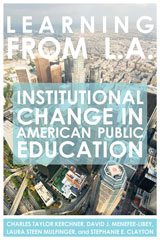Three Modest Suggestions About Technology Policy
Posted on | November 20, 2012 | Comments Off on Three Modest Suggestions About Technology Policy
Last Friday, I presented some of my thoughts about educational technology at the Policy Analysis For California Education seminar at Sacramento. I began by asking the same question that I’ve asked myself and others over the last couple years: “Why should California, the headwater of the digital revolution, be stuck in the eddies of early 20th Century school design?”
There is no good reason, only political will, and the inability to find a clear enough vision to create public policy that will work. That, as it turns out, is a tall order.
People are more afraid of giving up control than they are excited about the possibilities of technology. Although educators frequently denigrate standardized testing, they remain wedded to standardized learning: a single scope and sequence, age and grade leveled. It will take some doing to disturb the existing grammar of schooling.
Technology to change learning does not yet have a champion. This is not to say that there are not advocates for technology usage, particularly among the companies that manufacture hardware and software. But we miss “the city on the hill vision” connected to the political vision to bring it about.
I made three policy suggestions at the seminar:
- Improve those places in the existing system that are most troublesome and expensive. In California, as in most of the rest of the country, these include the education of English Language Learners, Special Education, remediation at all levels, and the transition from high school to college.
- Start to build a web-based educational infrastructure available to all students, teachers, and families in the state. It would do three things. It would create access at school and at home thus partially bridging the digital divide between rich and poor. It would broker and rate lessons and teaching resources. And it would allow students to take examinations and get credit when they are ready.
- Tweak regulations in order to create a more open system with greater incentive for participation and innovation.
The slides from my talk are available along with a video of the PACE presentation.




